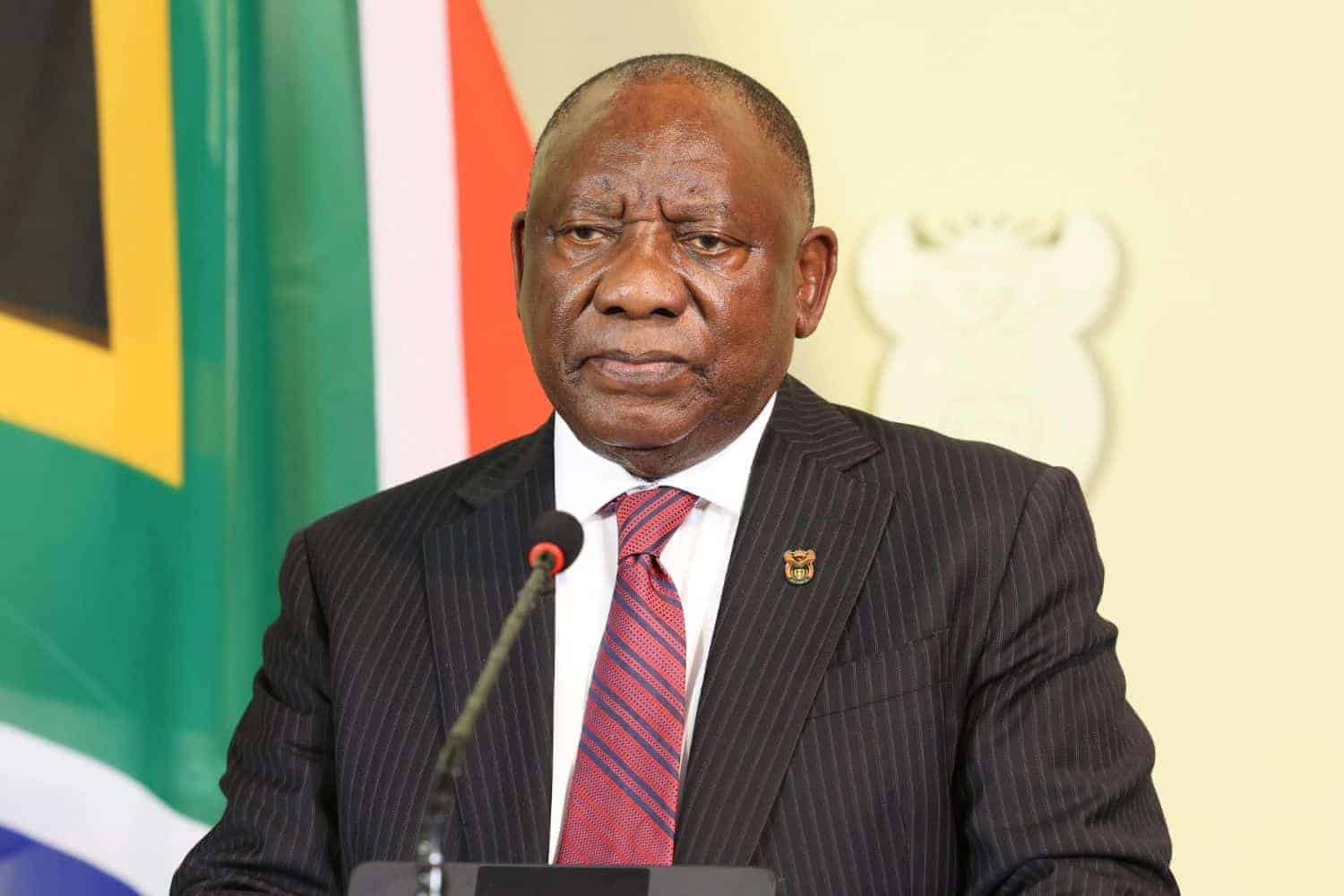President Cyril Ramaphosa has shirked his duty to state that SANDF meddling in civilian matters is intolerable.

Unlike many African armies, ours has been blessedly docile and dormant in domestic politics. But as the civilian sinews of security – investigative, prosecutorial and judicial – slacken, the generals are starting to flex their muscles. They must be checked.
The constitution gives the SA National Defence Force (SANDF) a narrow, apolitical mandate. In essence, its role is to defend the country under the direction of the defence minister, acting with the authority of the president, and subject to parliamentary oversight.
A flurry of recent incidents demonstrates that the SANDF is ignoring those democratic structures and, dangerously, none of the constitutional checks on military adventurism have kicked in.
ALSO READ: Ramaphosa says SA won’t be bullied, rejects claims of bowing to US
Despite muted expressions of disquiet from President Cyril Ramaphosa and Defence Minister Angie Motshekga, the executive has not reined in the military. Whether the president and his Cabinet accept militarisation out of paralysis, or disagree, the effect is the same.
Parliament, too, is passive. The ANC’s principal coalition partner, the DA, has sounded the alarm, but its snap-debate request still languishes. The programme of the government of national unity (GNU), especially in defence and foreign affairs, is driven by the ANC, which acts with impunity.
Ramaphosa underscored the point last week: his “see-me-in-my-office” with the chief of the SANDF, General Rudzani Maphwanya, amounted to no more than a wrist-slap after calls from the DA and others to court-martial him or retire him early for breaching neutrality during a contentious visit to Iran last month.
ALSO READ: Brics leaders slam US tariff ‘blackmail’ as Ramaphosa warns of hardship
In Tehran, Maphwanya cast the trip as “not only a military one” and timed to send “a political message”. This happened mid-reset with Washington; despite perfunctory statements that the SANDF does not set foreign policy, the damage was done.
Internationally, this is where the “nonaligned” fiction snapped. Had it been a rogue mishap, he would have been fired on the turn; instead, Motshekga said there was “nothing wrong” and “nothing rogue” about his actions.
Ramaphosa’s meeting changed nothing. The Presidency said the trip was not approved by his office, that authorisation came from the minister; the president added only that the timing “could have been managed differently”.
The president’s failure to pull Maphwanya up short is a failure of his duty as head of state to protect the constitution. Generals do not freelance the country’s alignments; impunity teaches the officer corps the wrong lessons.
An IOL piece a fortnight ago by Rear Admiral Prince Tshabalala, the SANDF’s director: defence corporate communication, confirms the drift. He argues Maphwanya’s visit was consistent with SA’s sovereign foreign policy – a line junior officers will read as doctrine.
Tshabalala is right that SA may pursue a sovereign foreign policy, but with two caveats. First, choices invite consequences. Second, policy is set by the GNU, not by the SANDF. Neither the GNU, nor parliament, nor, for that matter, the public can duck the costs.
ALSO READ: How will Ramaphosa deal with SA’s foreign policy nightmare?
If SA prefers confrontation with its Western partners – here, the US – we should be prepared to bear the consequences. What is playing out is a tragic failure of constitutional leadership.
Ramaphosa has shirked his duty to state that SANDF meddling in civilian matters is intolerable. The DA has not used its scant leverage in the GNU to force the point. The task now falls to civil society to make itself heard.
Tomorrow may be too late.
Support Local Journalism
Add The Citizen as a Preferred Source on Google and follow us on Google News to see more of our trusted reporting in Google News and Top Stories.








